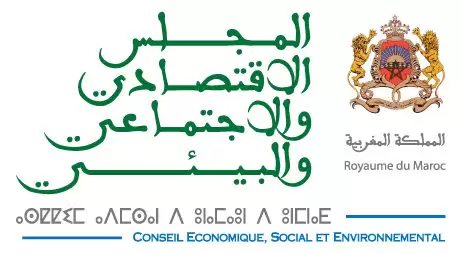
This is an own-initiative study-based opinion where the Economic, Social and Environmental Council (CESE) deals with the issue of how to preserve and transfer learned competencies and knowledge in public and private business sectors. Themed “Promotion of Competency Transfer in Work Settings”, the study explores ways to help enhance competency and skill transference for people in public and private corporate landscape.
Synthesis
This is an own-initiative study-based opinion where the Economic, Social and Environmental Council (CESE) deals with the issue of how to preserve and transfer learned competencies and knowledge in public and private business sectors. Themed “Promotion of Competency Transfer in Work Settings”, the study explores ways to help enhance competency and skill transference for people in public and private corporate landscape.
Indeed, competences are intangible resources that a business (either in the public or the private sectors) will need to thrive and maintain a competitive edge. The transference of competencies is a conduit for preserving knowledge, especially the kind of knowledge that is hard to codify and impart because it involves less formal interaction and is garnered from personal experience alone. Not only does the transfer of competencies help optimize working time, but it also enables human capital (private and public sector workers) to find their way into and progress into a more cohesive business corporate culture.
In its study-based opinion, the Council points out that the matter of competency transfer, alas, has not yet gained its rightful place in our country. There have been actions and initiatives galore in this connection (including cartographic and referential overview thereof), and yet these are wholly insufficient to overcome the countless barriers to a successful outcome to the transfer of competencies in corporate Morocco today. These obstacles vary and include:
– Lack of adequate procedural framework. Informal culture is the most common form of competency transfer, particularly to new recruits.
– A clear lack of mechanisms and frameworks for the transfer of competences (engagement activities, competence socialization, knowledge sharing platforms, succession planning, etc.).
– The knowledge transmission chain is broken in certain business activities that have a strong tacit dimension and where experience-based informal learning takes place (such as in handicraft tradition).
Not only can this be explained by the fact that the culture of knowledge sharing and transfer is a weak one, but also the legal framework in place proves to be of little assistance when it comes to promoting the transference of knowledge and competences. Indeed, the provisions of the general statute governing the public service sector and the labour code give weight to diplomas, degrees, qualifications, professional experience and seniority. As such, these two instruments are not obviously likely to help promote the development of competences. They also do not provide for the ways in which the transfer of knowledge and competences is to be carried out.
The results of the participatory diagnosis carried out by the Council suggest the urgent need for our country to give special attention to the issue of imparting competencies within work settings. And this is all the more important when we realize just how this problem further assumes complex proportions. Reasons for this include:
– A massive move into retirement that will affect 9.75% of the public service workforce between 2021 and 2025. The situation worsens with insufficient efforts to boost recruitment activity.
– Intensification of the brain drain phenomenon. In this connection, Morocco ranked as the second highest rate of brain drain in the MENA region (Human Flight and Brain Drain Index, 2022).
Given the importance of the matter at hand, the Council calls for the preservation and transference of competences to be treated as a cross-cutting element to be mainstreamed in all human capital management strategies and policies. In this regard, the following key actions are recommended:
– Embark on a review of the statute of the public service and of the labour code. The purpose is to incorporate the concept of the transfer of corporate competences, with due attention focused on clearly defining its key elements and scope and identifying the terms and conditions for the transference of these competences.
– Build a competency map to drill down skills and endangered jobs facing extinction. The objective is to help save them by:
o Establishing and updating a list of jobs and related occupations along with a list of jobs and related competences.
o Establishing and/or strengthening job and competency observatories that identify existing and/or needed competences and anticipate hard-to-fill or endangered jobs and positions. The aim is to put training programmes in tune with the requirements in this area.
o Further developing plans to safeguard jobs and occupations at risk of extinction, especially handicraft occupations. This can be done through apprenticeship training and based on the ancestral learning process of passing experience from master craftsman “Maalem” to apprentice (the traditional master-apprentice system).
– Improve the transference of competences through continuous training. This may be through:
o Using credit time continuous training (as per the provisions of Law 60.17 on organizing continuous training programmes for private sector employees) to optimize the transfer of skills, along with allocating a portion from the revenues of vocational training tax to finance programmes to facilitate the transfer of business corporate skills and competences.
o Enlisting experienced and retired employees and competency-based networks to conduct continuous training and help improve the quality of vocational trainers.
– Use incentive-based measures for the transference of skills and competences in the public and private sectors:
o Include the transfer of competences in the process of employee performance assessment and salary progression.
o Leverage intra- and intersectoral mobility of public and private sector workers to enhance transfer of competences, expertise and know-how, while securing
uninterrupted access to social benefits. Establishing an adequate legal framework is indispensable to give effect to this objective.
Drawn up through a participatory approach getting all stakeholders to work together, the present study-based opinion is the fruit of a wide-ranging debate between various constituent categories of the Council, and the outcome of a series of hearings involving relevant key actors. This opinion is also informed by the findings of the consultation launched by the Council on its digital feedback platform for citizen contribution “ouchariko”. More specifically, respondents have stressed the need to deliver a more streamlined process of competency transfer. The data collected through the survey corroborate the conclusions from the analysis presented in this opinion and the recommendations set out therein.
Here is a broad outline of the key elements of the present study-based opinion on ways to promote the transfer of competencies in work settings. The opinion was adopted unanimously by the Council’s General Assembly at its extraordinary session of 29 September 2022.
